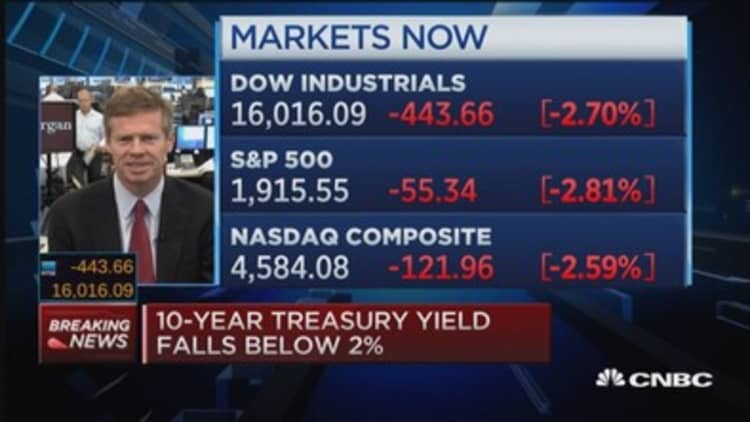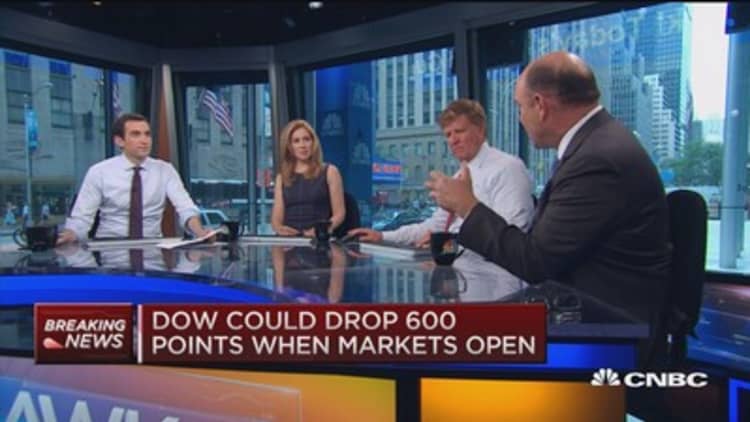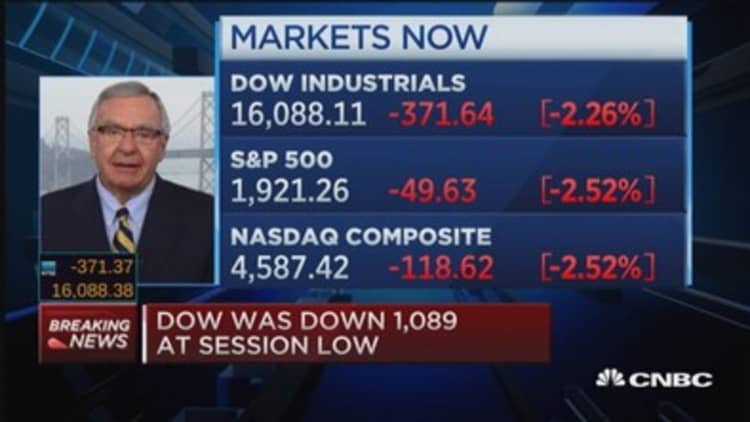


The public has been seemingly desperate for the Federal Reserve to raise interest rates.
"Savers are getting creamed here," has been a common refrain.
"Banks are getting crushed."
"Zero percent sends a bad message, it undermines confidence."
Even the experts seem upset by the inertia: "It's simply time," has become another popular phrase.
Imagine what would happen, then, if the Fed raised rates—and they dropped even lower, instead. That's effectively what's happening today.
Even if the Fed hasn't raised interest rates, it has stopped lowering them, and it has stopped the balance-sheet expansion that replaced rate cuts once its target rate hit zero.
That, combined with a stronger U.S. dollar, means despite rates still being near zero, the Fed has effectively been tightening monetary policy.
And yet, longer-term interest rates are dropping. The yield on the 10-year U.S. Treasury note was nearly 2.3 percent at the beginning of August; it just dropped back below 2 percent amid the global stock-market rout.
Read More Markets seek clarity from China, Fed
That is in sharp contrast to widely held expectations for rates to rise this year—a call that has been repeated, and repeatedly wrong, for many years now, even as the Fed has signaled it is about to hike rates for the first time in over a decade.
Remember that all the Fed does is set a targeted extremely short-term, overnight interest rate that most impacts banks and other financial players that deal directly with the central bank.
What happens to longer-term interest rates, like the benchmark 10-year Treasury note that sets most mortgage rates, is a different story.
Sometimes, all interest rates are moving higher at the same time. That's because the market thinks inflation will be higher over a longer time horizon, and so demands a higher yield on longer-term securities.
Today though, the market isn't so convinced that inflation will be higher over time.
"More than half the components of the consumer price index have declined in the past six months," observed former Treasury Secretary Lawrence Summers, who just warned that if the Fed raises rates at its next meeting, in September, it will be making a "historic mistake."
Read More Grant: Central bank mispricing is backdrop to selloff
The collapse in oil and other commodity prices has added renewed downward momentum to the global inflation cycle. China, the biggest driver of global growth the past decade, is notably slowing and already experiencing deflation on the wholesale-price level. Big markets across the Middle East, Asia, and Latin America are in turn slowing too.
Market-based measures of inflation expectations in the U.S. continue dropping, now pricing in less than 2 percent annual inflation several years out. That indicates "a serious and sustained undershoot of the inflation target," said Michael Darda, chief economist and market strategist at MKM Partners, in a recent note to clients.
That in turn is pulling down the yield on longer-term interest rates.
The more the Fed tightens policy against this backdrop, with slowing global growth, falling inflation, and a flight to the U.S. dollar, the more those long-term inflation expectations could drop, dragging yields down with them.
Former Fed Chair Alan Greenspan once called this effect, when longer term yields were falling even as the Fed was steadily raising short-term rates back in 2005-06, a "conundrum."
Today, he says he thinks this behavior, also being witnessed today, is rather logical—and that the "conundrum" may actually be prior periods when higher short-term rates begat higher long-term rates as well.
What's all this mean for those desperate for higher rates?
That paradoxically, the best way to get them is likely for the Fed to not hike at the moment.
"If the Fed remains on the current course," said Darda, the risk of a "premature" rate hike, and hence a return back to zero during the next downturn, "will likely rise significantly."


